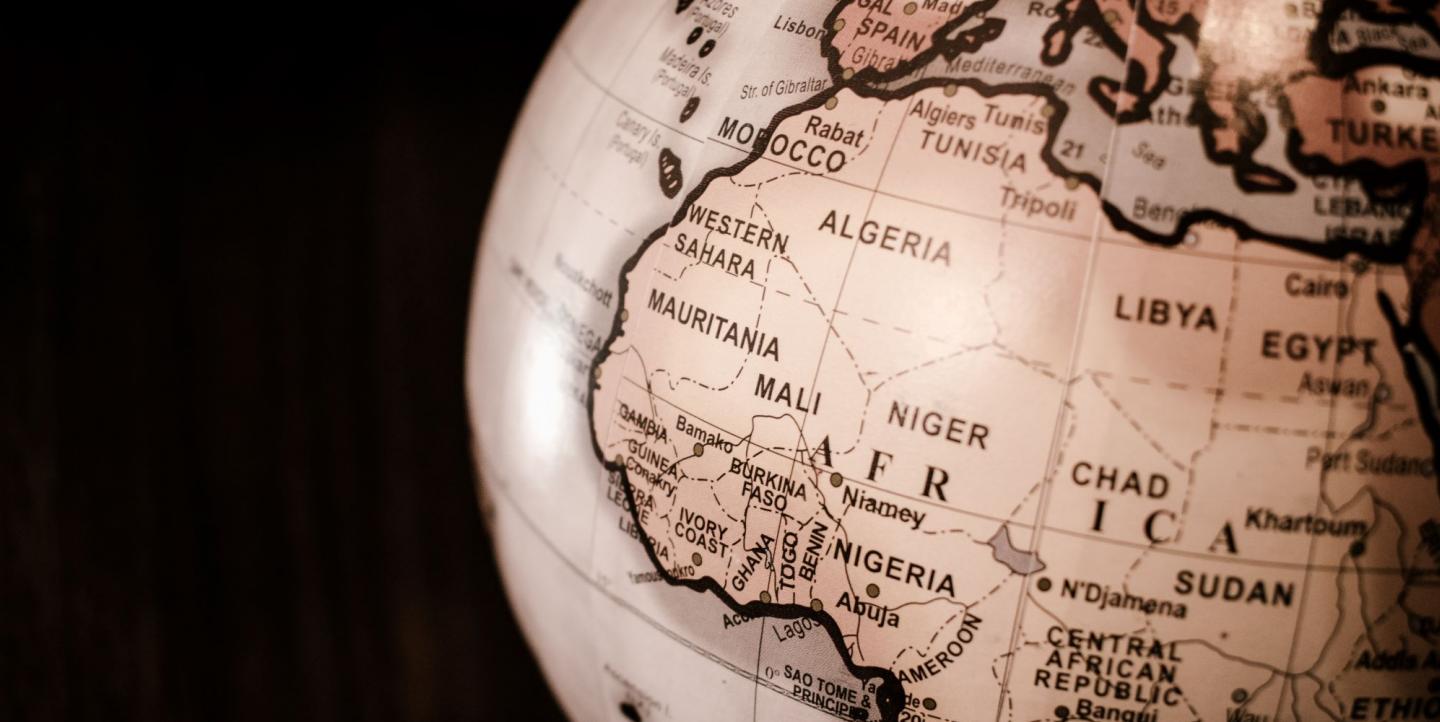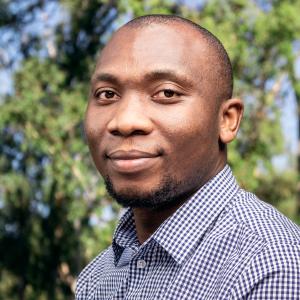For a little over a year now, a new media outlet called HumAngle has dedicated resources to covering conflict, migration and humanitarian issues in Nigeria and greater West Africa.
Founded at the pandemic’s outset in March 2020 by two Nigerian journalists, Obiora Chukwumba and Ahmad Salkida, the newsroom has reported on the plight of displaced persons, insecurity in Nigeria’s northeast region as a result of Boko Haram, and organizations working on the frontlines to respond to these issues.
“Our journey in this field is a pioneer work because this is the first time in Nigeria and the West African sub-region that any major platform was dedicating its entire vision and resources to reporting insecurity [and] humanitarian issues,” said Chukwumba. “Within six months of our operation, we reported the situation in northwest Nigeria as terrorism and not banditry. We did an editorial and gave examples and intelligence information.”
Two months later, Chukwumba said the U.S. State Department corroborated the HumAngle report. “I think this is a major landmark for a platform that was barely six months old at the time that this was happening. The reports HumAngle has been publishing have been a kind of beacon and guide to players and diplomats within the diplomatic community,” he said.
[Read more: This journalist wants to raise the bar for investigative reporting in Nigeria]
Back in 2017, Chukwumba and Salkida discussed starting an outlet that would focus on insecurity, crises, violence, kidnappings, insurgency, displacement and humanitarian issues across the country. “Someone needs to constantly paint a picture of what these [issues] mean and connect with the voices of victims so that we will have a sense of where we are as a nation. That is part of what we have been doing,” Chukwumba explained.
HumAngle’s approach is to focus not just on reporting statistics or events, but to include the voices and perspectives of victims of conflict, he continued: “It is unique to HumAngle, and sets the medium apart as a credible platform.”
The outlet’s work is recognized within the development and humanitarian communities. Because of their reporting, organizations like the Open Society Initiative for West Africa have reached out to discuss how newsrooms can best report on the pandemic, according to Chukwumba. “When we came in, our work became outstanding. The milestones and deliverables that we put across became far ahead of other media houses that featured in that project,” he said.
HumAngle also received a grant from African Transitional Justice Group to report on transitional justice related to the Boko Haram insurgency in northeast Nigeria. Since the insurgency began in 2009, more than 30,000 people have been killed while more than 2 million in the region have been displaced.
“Insecurity and crises have become a threat to Nigeria and the entire concept of nationhood,” Chukwumba said. “It is a major threat, and surprisingly not many media outlets in the country paid serious attention to this or interpreted it as what it is.”
[Read more: Reporting the crisis in Myanmar: Lessons from the ground]
He added that the hard work and commitment of the outlet’s staff contributed to their growing success covering insecurity and humanitarian issues. “Many of our reporters were actually first-timers. But we have trained them to a level that everybody wants to associate with the kind of journalism we are doing in Nigeria. It is something new, but also it is something serious and credible.”
The government, however, has criticized the outlet for producing what they’ve termed “doomsday journalism.”
“Now we cannot do doomsday reporting if there was no doom in the first place,” Chukwumba noted. “Nobody who said we do doom reporting has come to prove that this report is false or not credible. It is important we define appropriately what is threatening the very existence of Nigeria and in doing that, give voices to victims.”
Meanwhile, the publication has had to navigate COVID-19 and related lockdowns in the country as it has conducted its reporting. The challenges posed by the pandemic have been further exacerbated by the difficult conditions the media industry faces in Nigeria. The unique vision HumAngle has pioneered has helped weather the obstacles, and attracted attention both locally and internationally as a result. “It was turbulent for us and changed some of our plans, but it didn't alter our vision which we were faithful to. We kept on with our strategic plans and came out stronger and confident,” he said.
In the next five years, Chukwumba said HumAngle hopes to establish a strong footing across all of Africa. This includes launching a French edition of the publication to reach a Francophone audience.
This is important because the impact of insecurity is not just limited to Nigeria. It’s a worrying reality in Mali, Mozambique, Cameroon, Niger, and the Central African Republic, among other countries on the continent, said Chukwumba, adding that they are also looking at putting together a HumAngle Foundation, a nonprofit arm that will look at the media ecosystem and challenges reporters who work in crisis and conflict environments face, and how it affects the practice of journalism.
HumAngle is also looking into launching a wide range of multimedia information, including audio and visual content. It recently started a podcast series on insecurity and insurgency in the country.
“We need to design clinics, strategies and support systems that address such kinds of prevalent situations in our space,” said Chukwumba.
Patrick Egwu is a Nigerian freelance journalist based in Johannesburg where he is currently an Open Society Foundation fellow on Investigative Reporting at the University of Witwatersrand. He has been published by a number of publications, including Foreign Policy, NPR, African Arguments, Daily Maverick and Rest of World.
Photo by James Wiseman on Unsplash.


